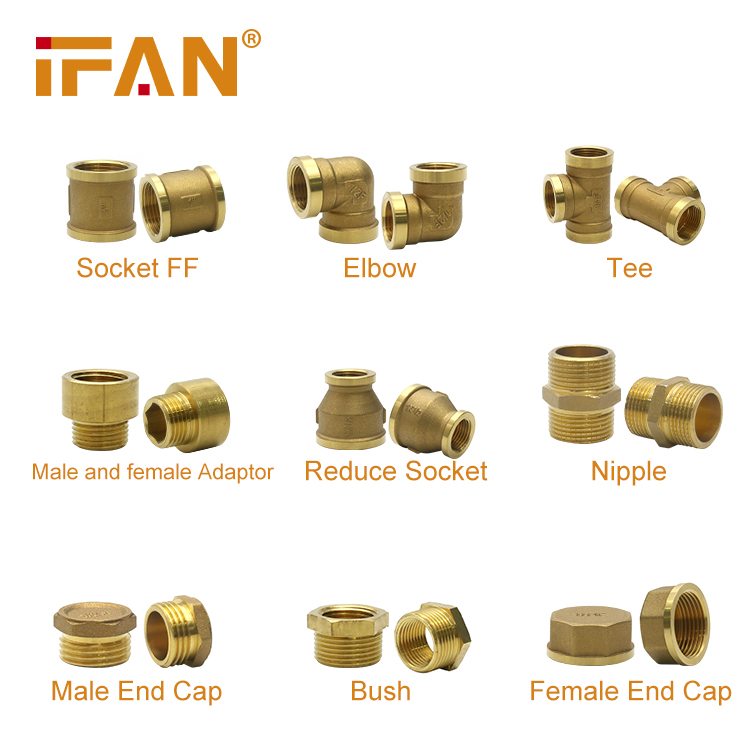Brass and plastic fittings are two popular options for plumbing and other applications. Brass fittings are made of an alloy of copper and zinc, while plastic fittings can be made of various types of plastic, such as PVC or polypropylene. The question arises: are brass fittings better than plastic fittings?
One advantage of brass fittings over plastic fittings is their durability. Brass fittings are known for their strength and resistance to wear and tear. They can withstand high temperatures and pressures, making them ideal for use in applications such as plumbing, heating, and air conditioning. Plastic fittings, on the other hand, may not be as durable and may crack or break over time.
Another advantage of brass fittings is their resistance to corrosion. Brass is a non-ferrous metal, which means it does not contain iron and is less susceptible to rust. Plastic fittings, however, may be more prone to corrosion, especially when exposed to harsh chemicals or extreme temperatures. This makes brass fittings a good choice for outdoor applications or in environments where corrosion is a concern.

what is brass Fittings?
Brass fittings are widely used in plumbing systems due to their durability, strength, and resistance to corrosion. They are made from a combination of copper and zinc, which makes them sturdy and long-lasting. Brass fittings are commonly used in high-pressure applications, such as water supply systems, gas pipelines, and industrial settings.
Brass fittings come in a variety of shapes and sizes, including elbows, tees, couplings, and adapters. They can also be threaded or soldered, depending on the needs of the system. Brass fittings are compatible with a wide range of materials, including copper, plastic, and stainless steel.
However, there are some drawbacks to using brass fittings. They are more expensive than plastic fittings, which can make them less attractive to budget-conscious consumers. Additionally, brass fittings can leach lead into the water supply, which can be harmful to human health. For this reason, it is important to ensure that brass fittings are lead-free before installing them in a plumbing system.
Overall, brass fittings are a reliable and durable choice for plumbing systems. They offer a range of benefits, including high strength, resistance to corrosion, and ease of installation. However, it is important to weigh the pros and cons carefully before choosing brass fittings for a particular application.

what is plsatic fittings?
Plastic fittings are widely used in various industries, including plumbing, medical, and automotive. These fittings are made from different types of plastic materials, such as PVC, PPH, HDPE and PPR. They are lightweight, easy to install, and cost-effective, which makes them a popular choice for many applications.
One of the advantages of plastic fittings is that they are resistant to corrosion and chemical reactions, which makes them ideal for use in harsh environments. They are also less likely to leak compared to metal fittings, as plastic materials do not rust or corrode. In addition, plastic fittings are less expensive than metal fittings, which makes them a cost-effective solution for many applications.
However, plastic fittings also have some drawbacks. They are not as durable as metal fittings and can crack or break over time, especially when exposed to high temperatures or pressure. They also have a limited temperature range, which means they are not suitable for use in high-temperature applications.
Despite these limitations, plastic fittings remain a popular choice for many applications due to their cost-effectiveness and ease of installation. However, it is important to consider the specific requirements of the application and choose the appropriate type of fitting based on the conditions it will be exposed to.


